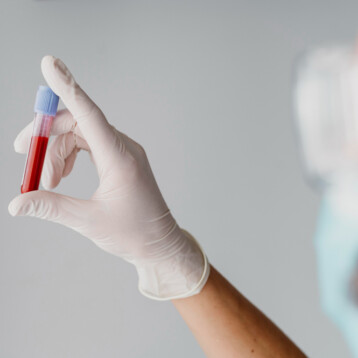|
Liquid crystals are substances that flow like liquids but maintain some of the ordered structure characteristics of crystalline solids. Although they are best known for their application in displays, liquid crystals are also an essential part of all life forms. Lyotropic liquid crystals are essential organic substances, DNA, lipids of cellular membranes, and proteins are some examples of well known liquid crystals.
Kent State University, Summa Health System and IC-MedTech have developed a new paradigm in drug discovery based on the pharmacologic properties of Liquid Crystal Pharmaceuticals (LCPs). LCPs are a unique class of lyotropic liquid crystals that represent novel drug candidates for the treatment of a wide range of diseases. Representatives of this research project recently filed applications for two new patents: one for a new LCP-based anti-tumor drug called Tolecine™ and another for a formulation that combines Tolecine and another LCP, Apatone.
Tolecine is a new pre-clinical anti-tumor LCP that also has antiviral and antibacterial applications. It is tumor-cell selective and exhibits a strong anti-neoplastic activity (it counteracts abnormal proliferation of cells in a tissue or organ). In addition, it has been shown to be more effective than the current standard of care for herpes.
|
Apatone is a clinical phase investigational new drug for late-stage prostate cancer. It is currently under consideration for clinical study for potential applications such as augmentation of chemotherapy to allow lower, less toxic doses of common chemotherapeutic agents. Apatone is made from two non-toxic compounds, a liquid crystal compound and a sugar, that selectively bio-concentrate within cancer cells and produce a free radical. Formation of the strong, short lived free radical is a concentration driven intracellular reaction and therefore only takes place in cells with sufficient sugar concentrations (such as cancer cells). The reaction results in oxidative stress that weakens the targeted cells from within. It is carried out quickly only within the cancer cells, with no toxic reaction by-products that might harm adjacent healthy cells.
Unlike other chemotherapy drugs, Tolecine and Apatone have low toxicity and do not target dividing cells. Instead, they are activated by inflammation that occurs in and around tumor cells, sparing healthy cells. Innovative, low-toxicity drugs such as Tolecine and Apatone provide new hope in the battle against cancer and other diseases. “LCPs are an untapped frontier from which many new, exciting treatments are now emerging”, says Dr. Chun-che Tsai, Kent State Professor of Chemistry, who created the new drugs with his colleagues.
Other attempts to develop targeted cancer-treatment strategies covered by TFOT include blockade of B-cells’ proliferation in Leukemia, killing of dividing cells without harming the non-dividing cells using electrical fields, and killing lone cancer cells using alpha-particles’ radiation.
Further information on Liquid Crystal Pharmaceuticals™, Tolecine and Apatone is available on Kent State University’s Liquid Crystal Institute website and on IC-MedTech Inc. website.












